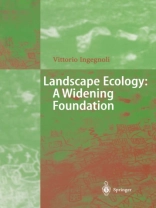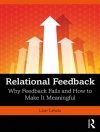Exactly 25 years ago on a warm autumn afternoon a young ecologist walked slowly through a tiny oak wood, and perched on a log to reflect. He had measured and seemingly knew "all" the species present – trees, mosses, mushrooms, birds and more. The research, based on this and other woods in the landscape, was the first rigorous test to see if island biogeographic theory was of use in heterogeneous land. Unexpectedly, an interior-to-edge model was found to be more useful. But on this beautiful sunny day he gazed out through the trees at the surrounding bean and maize fields. Suddenly a terrible thought hit him. The land surrounding the other woods differed slightly from this scene. Here there were two bean fields plus a maize field, meadow, hedgerow and farm road, but the other comparably sized woods studied had different mixes of these land uses. Wouldn’t the surroundings seriously affect the species in the woods? Had he done "bad science" (an awful feeling for a scientist)? Immediately he went to all his ecology books, searching for discussions of patchiness, mosaic pattern, interactions between ecosystems, and the like. Nothing. Surprise was a new ingredient to ponder. Then for 3 months every spare moment found him in the university library digging deeper, collecting tidbits and clues. A new feeling took over, challenge and excitement. The spatial arrangement of ecosystems and land uses is important ecologically! A giant but approachable scholarly frontier.
Vittorio Ingegnoli
Landscape Ecology: A Widening Foundation [PDF ebook]
Landscape Ecology: A Widening Foundation [PDF ebook]
Acquista questo ebook e ricevine 1 in più GRATIS!
Lingua Inglese ● Formato PDF ● ISBN 9783662046913 ● Casa editrice Springer Berlin Heidelberg ● Pubblicato 2013 ● Scaricabile 3 volte ● Moneta EUR ● ID 6341844 ● Protezione dalla copia Adobe DRM
Richiede un lettore di ebook compatibile con DRM












